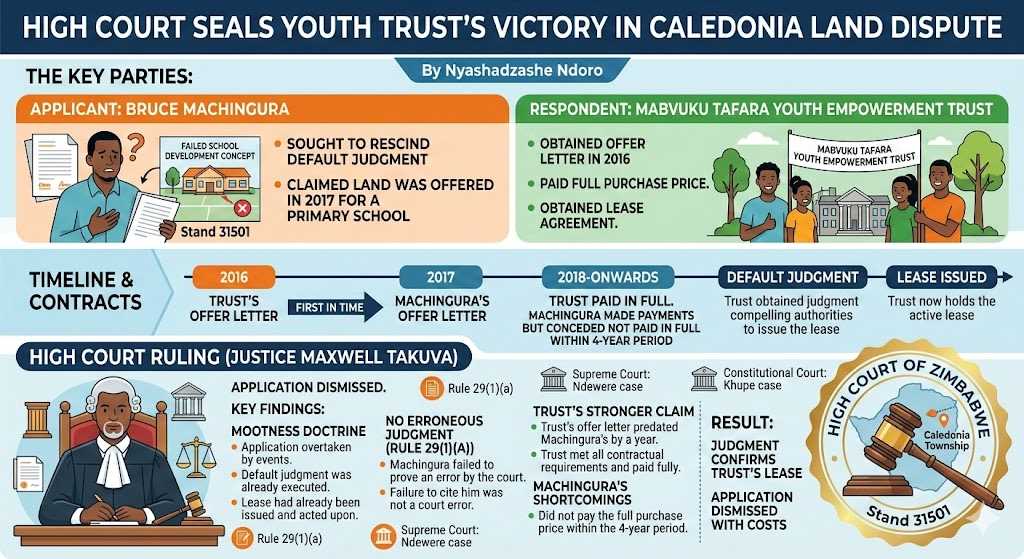
By Nyashadzashe Ndoro - Chief Reporter
Forty-five years post-independence, Zimbabwe faces a daunting US$21 billion national debt, a burden that includes obligations from the pre-colonial era and continues to fuel concerns among citizens regarding its effects on the nation's economic progress.
During a recent parliamentary session, Mazowe Central Member of Parliament Maxmore Njanji queried the Minister of Finance, Economic Development and Investment Promotion on government strategies to manage the burgeoning debt.
He cited external debt at approximately 35% of the GDP and internal debt at 24% of the GDP, attributing the challenging economic environment, in part, to "unjustified sanctions."
Responding to the query, leader of government business in Parliament, Ziyambi Ziyambi, while challenging the precise figures presented by Njanji, acknowledged the ongoing efforts to manage the debt situation. He highlighted a high-level program championed by the former President of Mozambique and the President of the African Development Bank, involving various development partners and countries, aimed at restructuring Zimbabwe's debt.
"Currently, as I am speaking, on the 26th of May, they will be convening in Ivory Coast and on the sidelines of that we have a meeting to have deliberations on how we can restructure our debt," Ziyambi stated.
He also noted that Zimbabwe has successfully cleared its debt with the International Monetary Fund (IMF) and that other outstanding debts are "manageable."
Mbizo legislator Corban Madzivanyika, however, pressed the Minister on the portion of the debt adopted from the pre-colonial government. Madzivanyika also raised the issue of debt growth being linked to climate change, largely caused by Western countries, and questioned whether Zimbabwe was pursuing reparations.
Related Stories
In response, Ziyambi clarified that the colonial-era debt was an obligation stemming from the negotiated settlement that led to the Lancaster House Agreement.
"On the first part, that part of the debt we inherited from the colonial period, I think you have a historical memory that we had a negotiated settlement that culminated in the Lancaster House Agreement and subsequent ushering in of the First Republic. Therefore, because of the agreements, we are obligated to carry those debts. We cannot dissociate ourselves from them," Ziyambi stated.
Regarding climate change and potential reparations, the Minister directed the focus to the ongoing work of the Ministries of Environment and Climate, and Energy. He mentioned the carbon credit scheme as a mechanism to "adequately cater in terms of the vagaries of climate change that are happening to us so that we are adequately compensated."
"On the second part pertaining to climate change, Mr. Speaker, our Ministers of Environment and Climate as well as Energy, are spearheading this via our carbon credit scheme to ensure that we adequately cater in terms of the vagaries of climate change that are happening to us so that we are adequately compensated.
"So, I would request the Hon. Member to defer the question and have conversation on the work that the Ministry of Climate and Environment is doing to ensure that we mitigate against climate change in terms of our programmes pertaining to this issue," the Minister stated.
Meanwhile, Zimbabwe's national debt has significantly ballooned in recent years, increasing from US$17 billion in December 2023 to over US$21 billion, primarily due to the recapitalisation of the Mutapa Investment Fund (MIF). This surge in debt is largely attributed to two major transactions involving the acquisition of shares in Kuvimba Mining House (KMH).
The MIF acquired a 35% stake in KMH for US$1.9 billion. This transaction was not a cash payment but was financed through Treasury Bills (TBs) with a tenure of up to 10 years, issued by the government as a loan to MIF. While no immediate cash was exchanged, the issuance of these TBs represents a government liability and therefore contributes to the national debt.
In April 2024, the MIF reportedly acquired the remaining shares of KMH for an additional US$1.6 billion, also utilising Treasury Bills. This further added to the government's liabilities.
These two KMH deals alone total US$3.5 billion, acting as a direct driver of the increase in Zimbabwe's public debt.




















Leave Comments